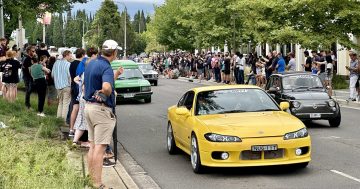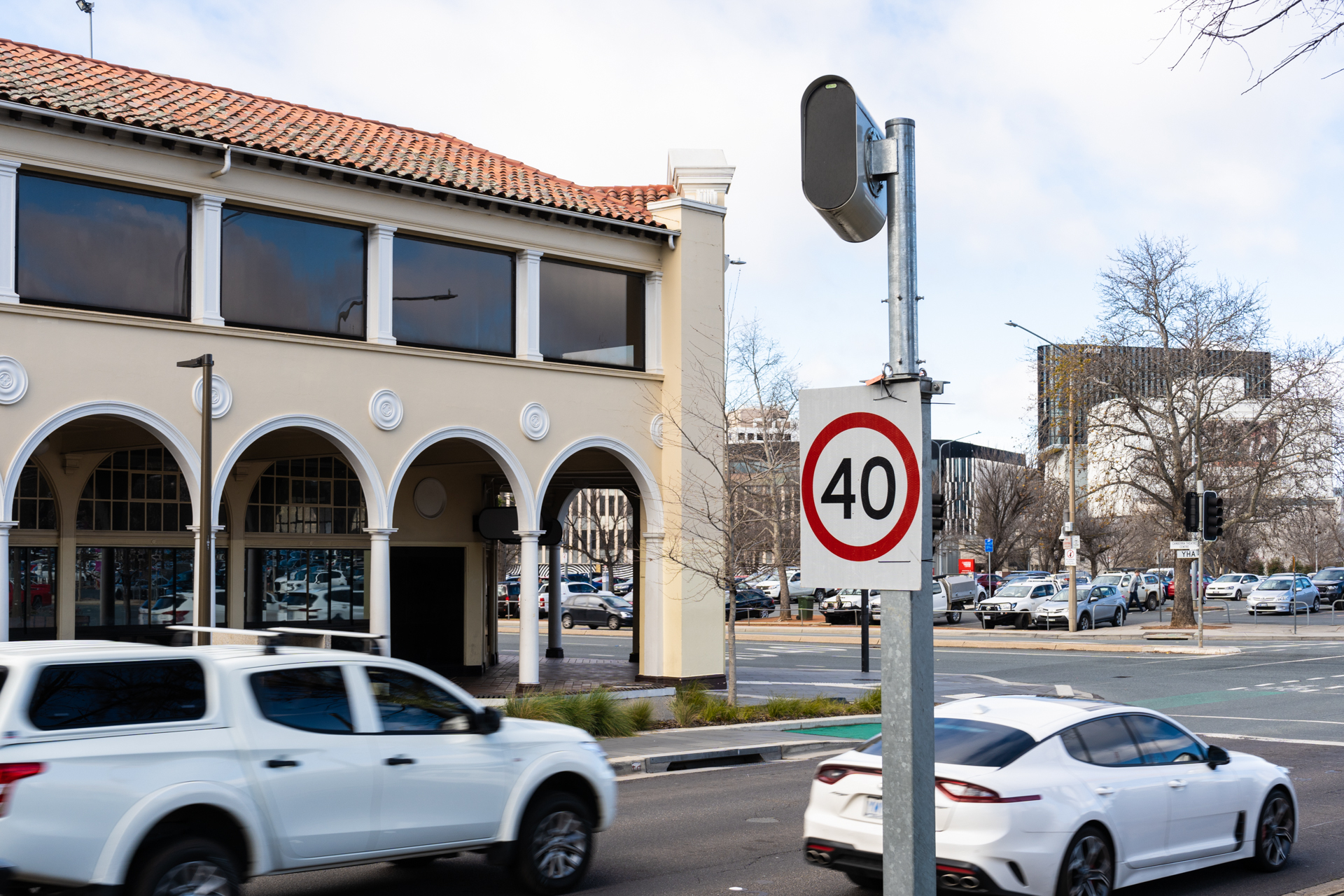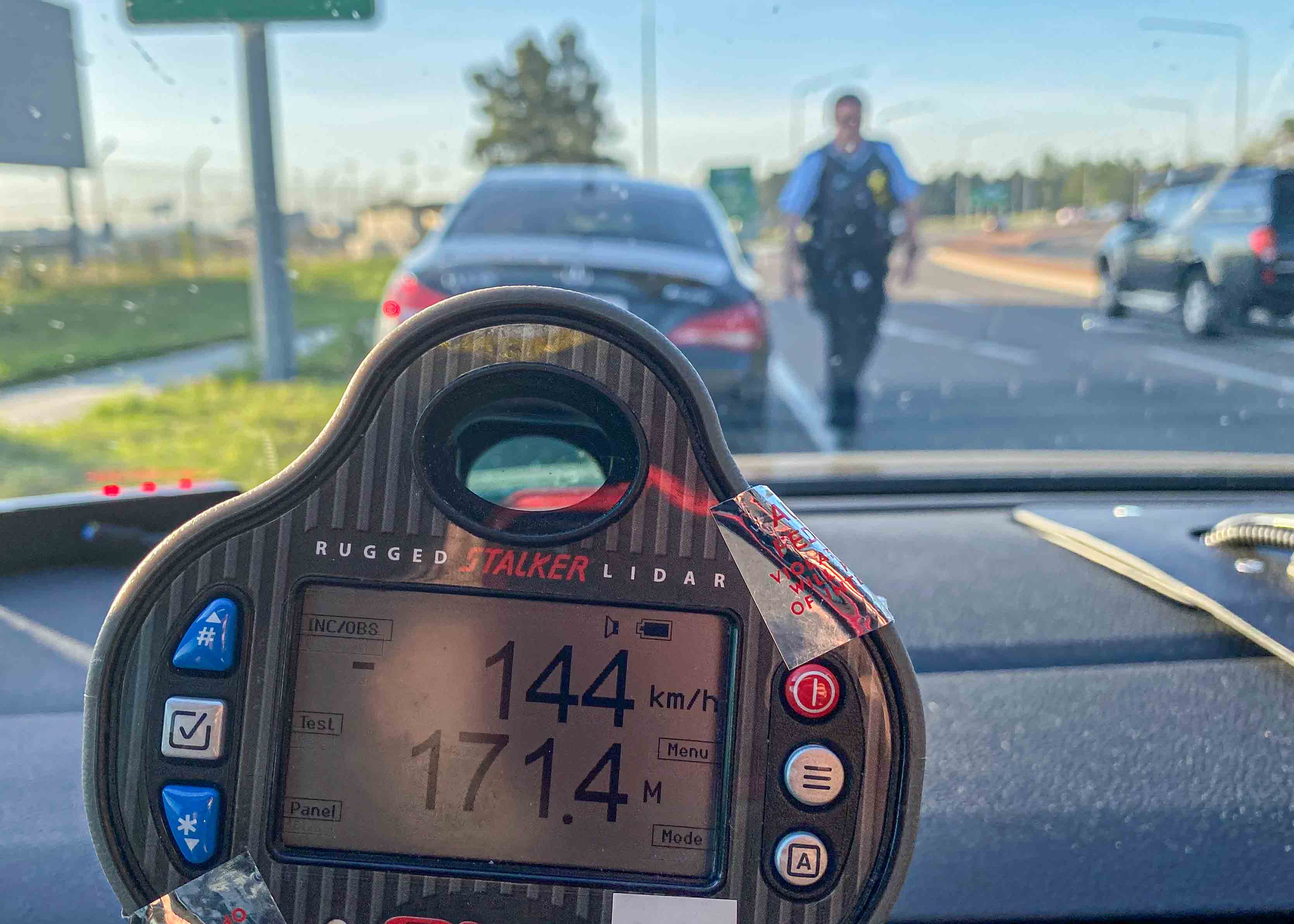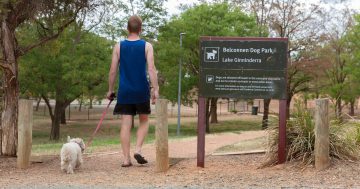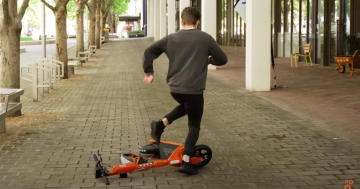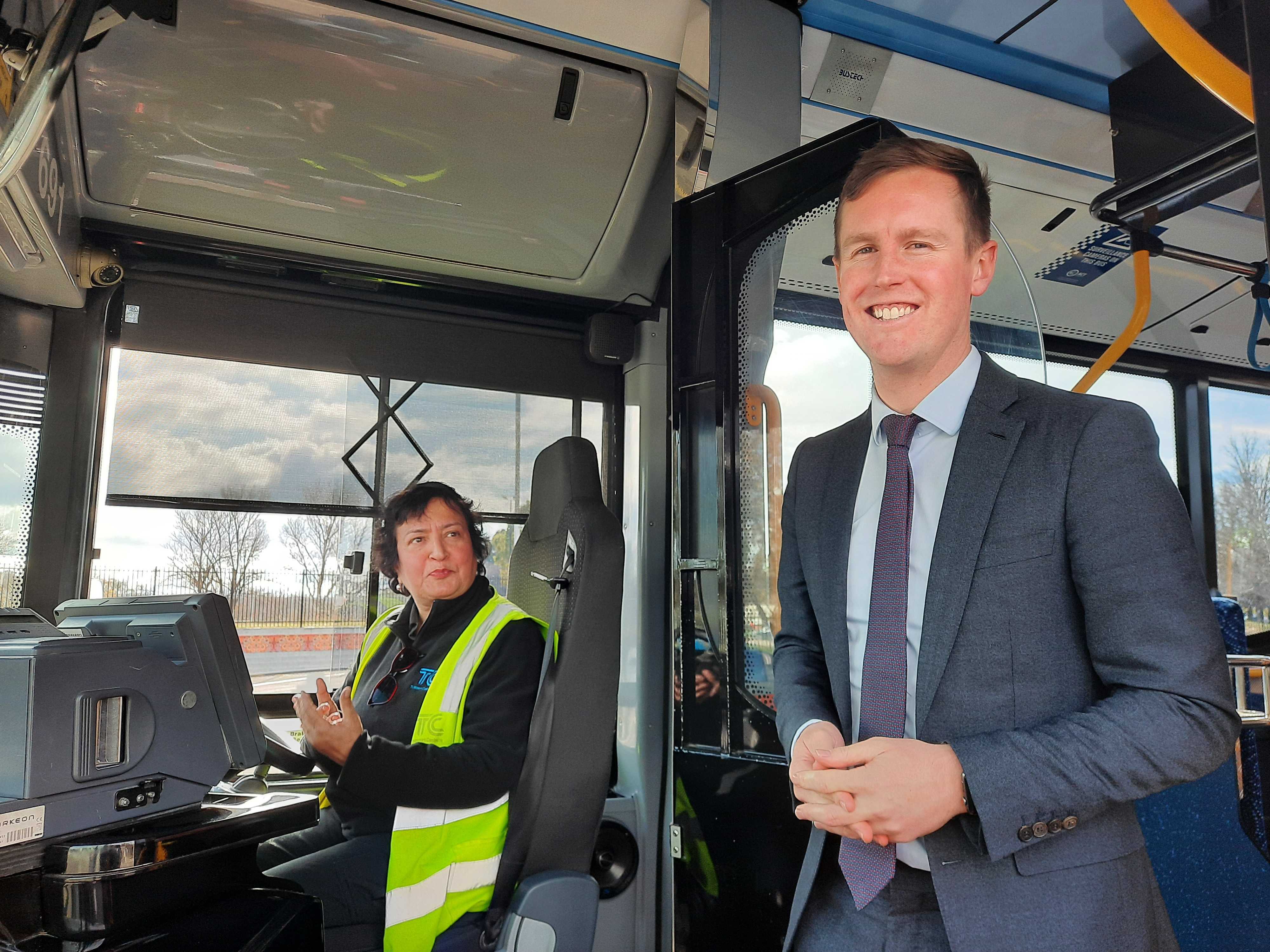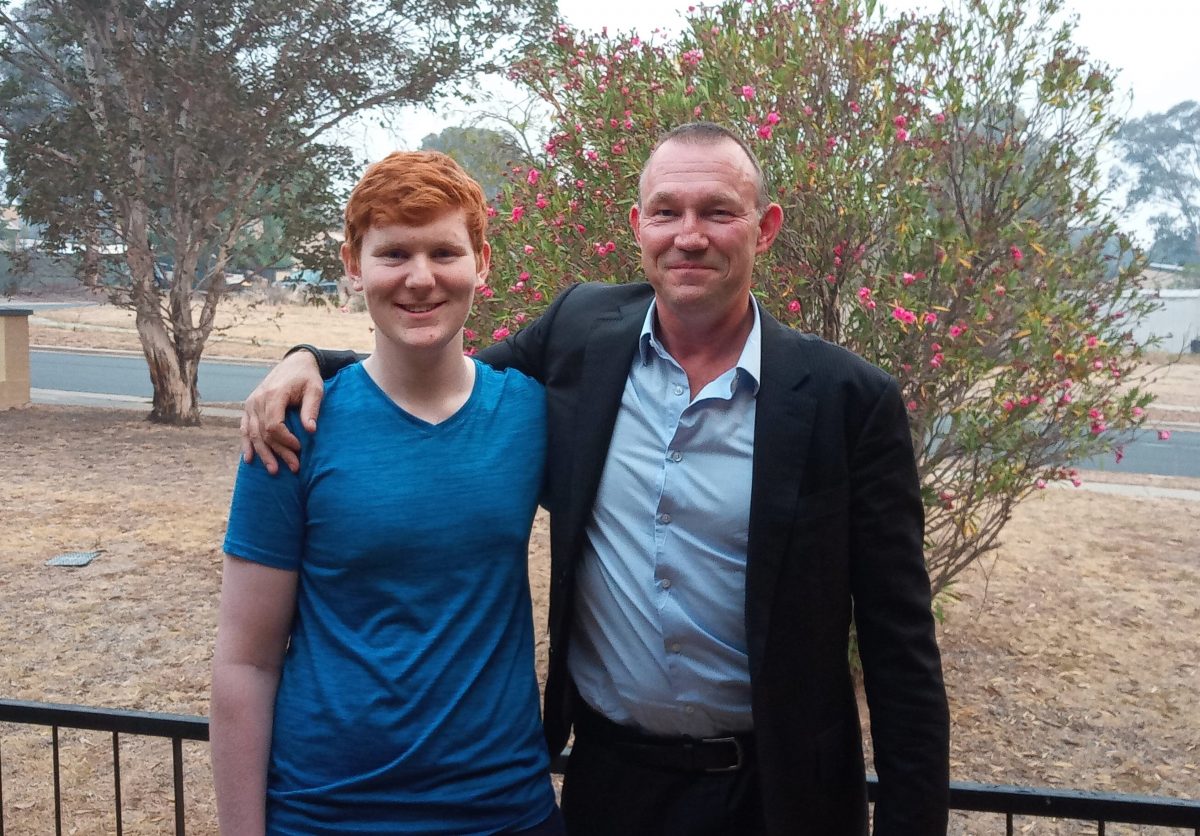
Matthew McLuckie with his father Tom, whose calls for reform deserve a hearing. Photo: ACT Policing.
Tom McLuckie isn’t about to let his son’s death be in vain.
Late on the night of 19 May, a speeding car travelling on the wrong side of Hindmarsh Drive killed 20-year-old Matthew McLuckie as he was driving home from work.
The alleged female driver of the other vehicle is still in hospital in critical condition and has not been charged. Police are also still looking for the driver of a third vehicle who fled the accident scene.
Since that night, Mr McLuckie has begun campaigning for a range of legal reforms which he believes would deter the kind of dangerous driving that took his son’s life.
He argues the ACT is soft, at least in comparison with nearby NSW, on motor vehicle crime, including speeding, street racing and hooning.
He wants mandatory minimum sentencing with no parole for serious motor vehicle crime and loss of licence, and impounding of motor vehicles for excessive speeding and other reckless driving.
He wants reckless drivers in the ACT to be afraid of the consequences.
Mr McLuckie also wants more police patrols so potential offenders don’t think they can exploit so-called “black zones” where they will be safe to break the law.
Many might say he is finding a way to channel his grief, but Mr McLuckie is calm and lucid talking about this, although the pain must be unbearable.
His calls for greater policing and tougher charges and penalties will also resonate with Canberrans who have experienced the hooning in their suburbs or on the outskirts of town, the near misses, or worry that their children will be victims of drivers in hotted-up cars who have no heed to the road rules that govern us all and aim to make using the road as safe as possible.
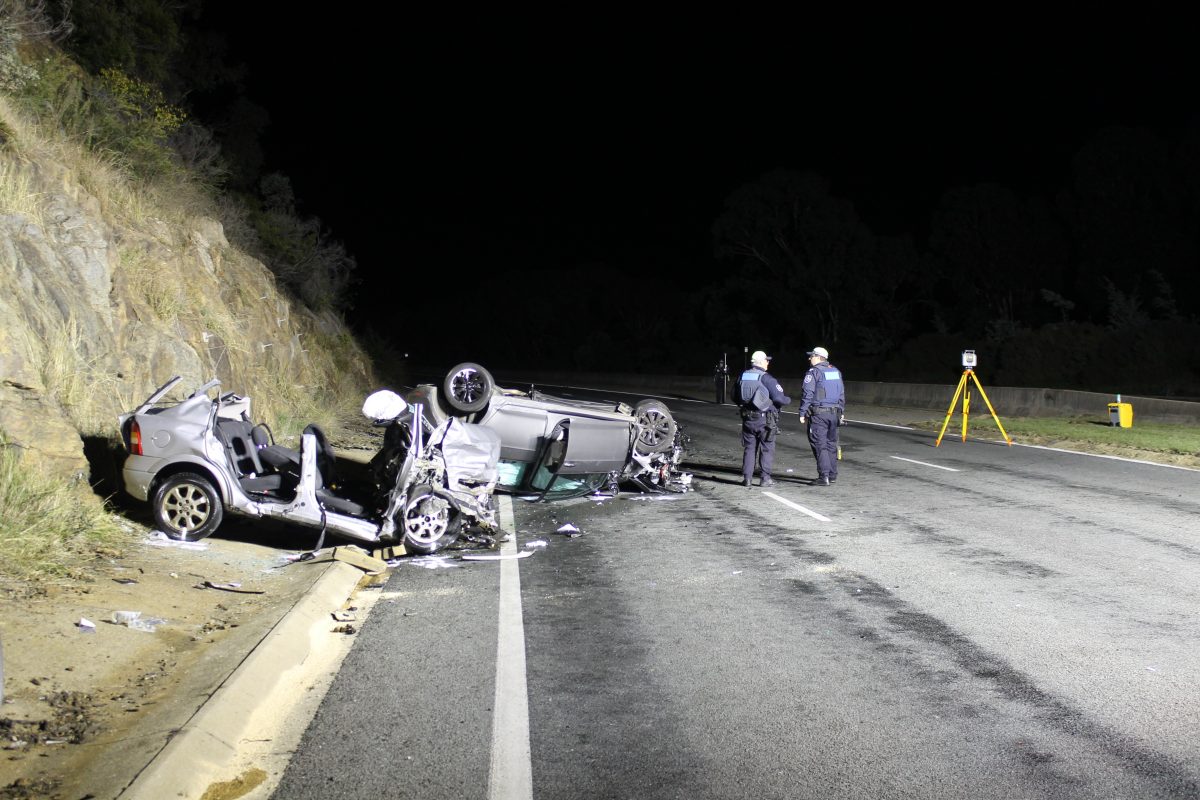
The crash scene on Hindmarsh Drive where 20-year-old Matthew McLuckie died. Photo: ACT Policing.
Police resourcing under the contract with the AFP is an ongoing issue for Canberra, especially with the latest census figures showing the city is growing more than expected.
The ACT Government remains under pressure from the Opposition and the AFP Association to secure more police so they can respond better to crime and safety in the ACT, particularly in Canberra’s growth areas.
Communities regularly complain that police are spread so thin that by the time they can respond to a complaint the offenders have fled or that a lack of presence allows opportunistic crime to flourish.
On the matter of motor vehicle crime, ACT Policing has devoted resources to cracking down on street racing and hooning, with more than 1100 criminal charges laid in the past two and a half years for serious driving offences.
But that tends to only reinforce Mr McLuckie’s point that the level of charges and penalties are not working and repeat offenders continue to thumb their noses at the law.
While police can seize vehicles for a time, the AFP Association supports impounding and crushing vehicles involved in dangerous driving incidents.
Mr McLuckie also believes that the legal system in the ACT is geared towards the human rights of the offenders rather than finding justice for victims and their families.
He mounts a powerful case for redressing this imbalance, and moving towards parity with NSW laws would be a start.
There should be scope within ACT law for police to lay charges that reflect the gravity of the crime and for courts to impose penalties that act as a deterrent and go some way to satisfying the needs of victims.
A government review of the legislation to identify gaps and weaknesses would be a proper response.
But Mr McLuckie’s calls for mandatory minimum sentencing with no parole for certain offences need to be treated with caution as they remove the discretion of judges, lead to overcrowded jails, and limit incentives for rehabilitation.
More police on the roads, a more vigorous use of what legal remedies are already available, and loss of vehicles and licences should be the first ports of call.
And while some might see education as a fruitless exercise, it should remain a visceral plank of the policy response to dangerous driving, as well as offenders having to confront the human consequences of their actions.
Original Article published by Ian Bushnell on Riotact.




